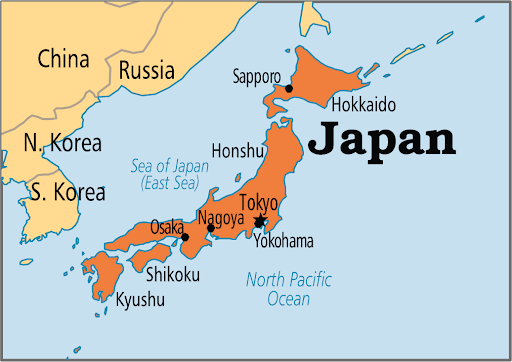Japan’s New Prime Minister | 17 Sep 2020
Why in News
Japan recently elected Yoshihide Suga as its new Prime Minister. He belongs to the ruling Liberal Democratic Party (LDP) of Japan.
Key Points
- Key Challenges Ahead: The new PM has to battle with the Covid-19 pandemic, rebuild the economy and also plan the Olympics scheduled to take place in Tokyo in 2021.
- Political System of Japan :

- Japan has a multi-party, bicameral, parliamentary, representative democratic constitutional monarchy.
- Constitution: It has a unitary model with supremacy of constitution.
- The Constitution of Japan is the fundamental law of Japan, enacted on 3rd May 1947.
- It is one of the very few democratic constitutions in the world having fundamental duties, apart from India.
- Government: The Government of Japan consists of a legislature, executive and judiciary.
- The Emperor is the Head of State and the Prime Minister is the Head of Government and the Head of the Cabinet (executive).
- The Emperor holds nominal ceremonial authority. For e.g. The legislature is known as the National Diet. Its members are directly elected by the people.
- The Diet has two houses- upper House of Representatives and lower House of Councillors.
- The Prime minister is designated by the National Diet but only the Emperor has the authority to appoint the Prime Minister.
- Feature Borrowed in Indian Constitution: The Indian Constitution derives its “Procedure established by Law” component from the Japanese constitution.
- The expression occurs in Article 21 (Right to Life and Personal Liberty).
- It means that law duly enacted by the legislature or the concerned body is valid only if the correct procedure has been followed to the letter.
- Hence, the validity of a law that has prescribed a procedure cannot be questioned on the ground that the law is unreasonable, unfair or unjust.
- It is different from the expression ‘due process of law’ contained in the American Constitution, which not only checks if there is a law to deprive the life and personal liberty of a person but also ensures that the law is made fair and just.
- With the Supreme Court pronouncement of “due process of Law “in the Maneka Gandhi case (1978), the court asserted the principle of reasonableness while deciding a case. It now means that the procedure must satisfy certain requisites in the sense of being fair and reasonable. The procedure cannot be arbitrary, unfair or unreasonable.
- Recent Developments in India-Japan Relations
- Recently, India and Japan signed a logistics agreement that will allow armed forces of both sides to coordinate closely in services and supplies. The agreement is known as Acquisition and Cross-Servicing Agreement (ACSA).
- Indian and Japanese warships conducted naval exercises in the Indian Ocean.
- India and Japan defence forces organize a series of bilateral exercises namely, JIMEX (naval exercise), SHINYUU Maitri (air force exercise), and Dharma Guardian (military exercise). Both countries also participate in Malabar exercise with the USA.
- Japan has mooted the Supply Chain Resilience Initiative (SCRI) as a trilateral approach to trade, with India and Australia as the key-partners.
- Supply chain resilience is an approach that helps a country to ensure that it has diversified its supply risk across a clutch of supplying nations instead of being dependent on just one or a few.
- The President of India visited Japan in 2019. The visit was the first presidential visit to Japan after a gap of 29 years.
